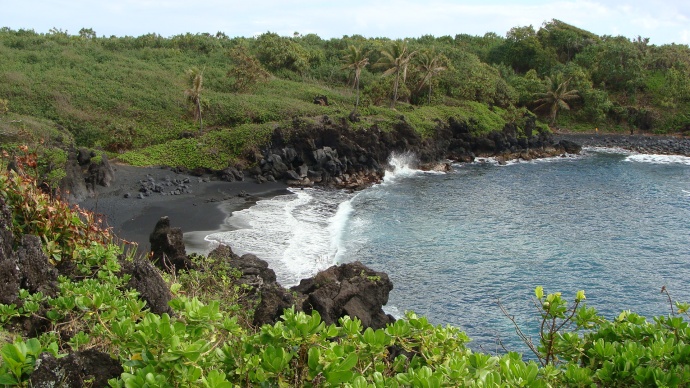Should Hawaiʻi visitors pay a $50 per year green fee? Some Maui residents think so

With tourism numbers predicted to reach new highs, Maui residents and others around Hawai’i are supporting a state plan to charge visitors $50 per person annually to use state and county beaches, parks and trails.
“I am from Upcountry, Maui, and have seen extreme changes in the health of our natural environments due to the impact of tourism — native reefs, forests, and animals have suffered from the lack of awareness of our visitors,” Kano Watanabe wrote in recent testimony that favors the fee. “If tourists want to continue visiting Hawai’i because of its natural beauty, they must also do the work to help protect it.”
Hawai’i State Legislature is considering measures SB 304 and HB 1162 to establish a new green fee. Money generated would then go toward conservation work across the state. Next for the proposal is a state Senate floor vote Tuesday. If it gets the green light, the plan moves to the state House.
“Green fees,” or “environmental protection fees,” have been successfully implemented at visitor spots around the world, including the Galapagos Islands, New Zealand and Palau, according to draft legislation.
Maui state Sen. Gil Keith-Agaran, who helped introduce the measure, said the plan would expand what state Department of Land and Natural Resources is already doing at state parks. He pointed to ʻĪao Valley, Mākena and Waiʻānapanapa state parks that benefit from parking fees for visitors.
“The fee serves both the purpose of raising money for repair, maintenance and improvements, and also to limit how much our visitors love the place,” Keith-Agaran told Maui Now on Wednesday. “We don’t really want some of these places being used over capacity.”
“I think (the green fee) is a great idea,” he added.
So far, Maui and other Hawai’i residents, organizations and groups have voiced support for the green fee. Maui Hotel and Lodging Association, Surfrider Foundation Maui Chapter and Maui Ocean Center, along with state DLNR and Hawai’i Tourism Authority, backed the plan in testimony.
Also, a recent survey of nearly 900 Hawai’i voters show that 63% want the $50 green fee. Results showed 88% believe tourists should pay their fair share to protect and manage natural, cultural and recreational resources in Hawaiʻi; 88% feel it is their responsibility to protect Hawaiʻi’s cultural legacy for future generations; and 89% think Hawaiʻi should increase its investment in protecting land, water, wildlife and recreational resources.
The survey from Jan. 8 to Jan. 19 was commissioned by Hawaiʻi Trust for Public Land, Resources Legacy Fund and The Nature Conservancy.
However, not all the testimony favors the green fee.
The Tax Foundation of Hawaiʻi in recent testimony said the fee may be challenged as “unconstitutional” because federal courts protect US citizens from being treated differently when they are trying to travel to different states.
“For these reasons we are concerned that the state is without power to limit access of visitors to places where residents are allowed,” the foundation wrote in testimony.
Inconsistencies in the definition of “resident” were also found in the proposal, according to the tax foundation. The bill calls a person a resident if a Hawaiʻi tax return is filed, but nonresidents file Hawaiʻi tax returns, too. The bill allows a person to be classified as a resident if they have a utility bill or similar document showing a Hawaiʻi address, but the Hawaiʻi address could from a second or third home.
The concept of a green fee is not new.
University of Hawaiʻi Economic Research Organization in a 2021 discussion said the idea of raising money from visitors to fund conservation and environmental management programs have been mulled in Hawaiʻi for “some time.”
UHERO in the discussion looked at whether visitors alone or both visitors and residents should contribute money that protects the environment.
Hawaiʻi had a record 10.3 million visitors to the state in 2019, according to HTA data. The pandemic shutdowns resulted in 2.7 million visitors in 2020, then 6.8 million arrivals in 2021. A total of 9.25 million visitors came to Hawaiʻi in 2022, and economists predict tourists could exceed all-time annual records in the near future.






